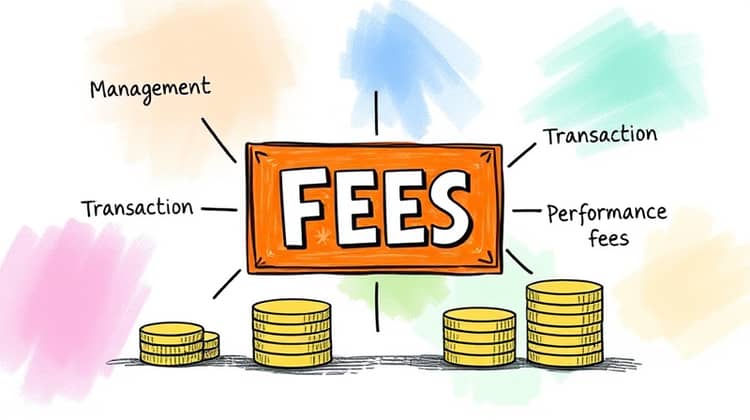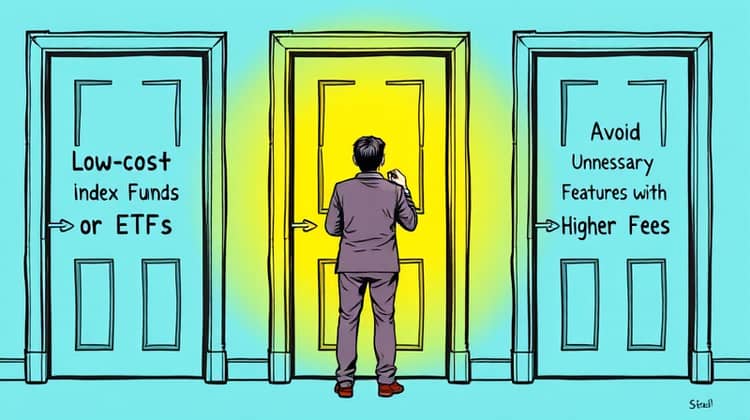Investment fees are an important part of the financial landscape that every investor should be aware of. They can significantly affect the overall returns on an investment portfolio, and understanding these fees is crucial for making informed decisions. Whether you're a seasoned investor or just starting out, knowing how to navigate the complexities of investment fees can lead to better investment outcomes.
The investing world can be riddled with jargon and complexities. With various fees charged by different financial institutions, the clarity around these fees often gets muddled. This guide seeks to demystify investment fees, explore their types, their implications on returns, and how you can minimize these costs.
By the end of this article, readers will have a comprehensive understanding of investment fees, and be equipped with the knowledge to effectively evaluate and reduce the costs associated with their investments.
What Are Investment Fees?

Investment fees refer to the costs associated with managing an investment account or fund. These fees can vary widely depending on the type of investment, the institution providing the investment, and the specific services rendered. Understanding the different types of fees is essential as they can erode your investment returns over time.
Fees can be charged in several ways, including management fees, transaction fees, and performance fees, among others. Each of these fees can impact your overall returns differently, making it important to have a clear picture of what to expect when investing.
For investors, being aware of these fees is akin to understanding the rules of the game. Having clarity on what you'll be charged and when can directly influence your investment strategy, helping you to maximize your returns and minimize unnecessary costs.
Types of Investment Fees

Investment fees come in various forms, and understanding them is paramount to maintaining a healthy investment portfolio. Here are some common types you might encounter:
1. Management Fees: These are ongoing fees charged by investment managers for their services in managing a portfolio. They are usually a percentage of the assets under management (AUM).
2. Transaction Fees: These fees occur when buying or selling investments and can include broker commissions or fees charged by trading platforms.
3. Performance Fees: Some investment managers charge fees based on the performance of the investments they manage, typically a percentage of any profits generated above a certain benchmark.
4. Load Fees: These are sales charges imposed on mutual funds and can be classified into front-end and back-end loads, affecting the amount you initially invest or the profit you retain upon selling.
5. Expense Ratios: This is the annual fee expressed as a percentage of the fund's average assets under management, covering various operational costs.
6. Advisory Fees: Charged by financial advisors for providing investment advice and management services, varying widely by advisor and level of service.
- Management Fees
- Transaction Fees
- Performance Fees
- Load Fees
- Expense Ratios
- Advisory Fees
Understanding these types of fees can help investors make informed decisions and choose investment options that align with their financial goals.
Why Investment Fees Matter

Investment fees deserve attention because they can have a significant impact on overall investment returns. For instance, a seemingly small annual fee might not appear significant in isolation, but over the long term, those fees compound and can lead to substantial losses in potential earnings.
Research shows that high fees can erode more than just the initial investment; they can drastically alter future wealth accumulation. In fact, the difference between a 1% fee and a 2% fee can lead to a difference of hundreds of thousands of dollars over several decades depending on the investment amount and performance.
The principle of compounding interest is in play here; the less money you pay in fees, the more you have working for you. Thus, paying attention to investment fees is essential for anyone looking to maximize their financial potential.
How to Identify and Assess Investment Fees

Identifying and assessing investment fees requires diligent research and analysis of the investment options available to you. Start by reading the prospectus of any investment vehicle you're considering, where all fees will typically be disclosed.
- Check the investment fund's expense ratio in the prospectus or on financial websites.
- Understand what each fee covers and when it is charged.
- Compare the fees of similar investment products to see which offers the best value for the services provided.
By taking these steps, investors can gain a clearer picture of what they will be paying and how it will impact their financial goals.
Reducing Investment Fees

Reducing investment fees can have a profound effect on your overall returns. Here are some strategies to consider:
1. Choose low-cost index funds or exchange-traded funds (ETFs) instead of actively managed funds.
2. Negotiate fees with your financial adviser if possible—many are open to discussions about costs.
3. Be mindful of unnecessary features that come with higher fees—evaluate if you truly need wall-to-wall advisory services.
- Choose low-cost index funds or ETFs
- Negotiate fees with financial advisers
- Be mindful of unnecessary features that come with higher fees
These actions can help ensure that more of your money remains invested and working towards achieving your financial goals.
Conclusion

In conclusion, understanding investment fees is an essential part of effective investing. By recognizing the different types of fees and their impact, investors can make informed decisions that better align with their financial objectives.
It's crucial to remember that investing is not just about what you make, but also about what you keep. High investment fees can significantly diminish your returns over time, making it essential to be proactive in assessing and addressing these costs.
By applying the strategies discussed in this article, investors can reduce their fees, allowing for a more significant portion of their capital to be put to work. Ultimately, a more informed approach to investment fees leads to better financial outcomes.














